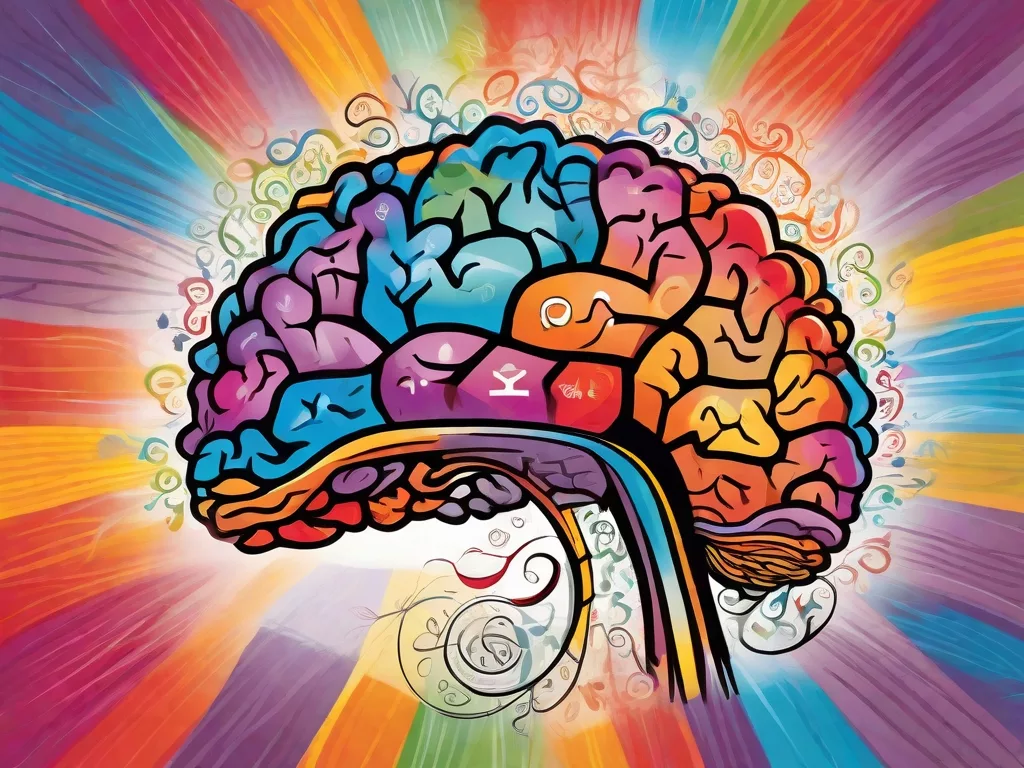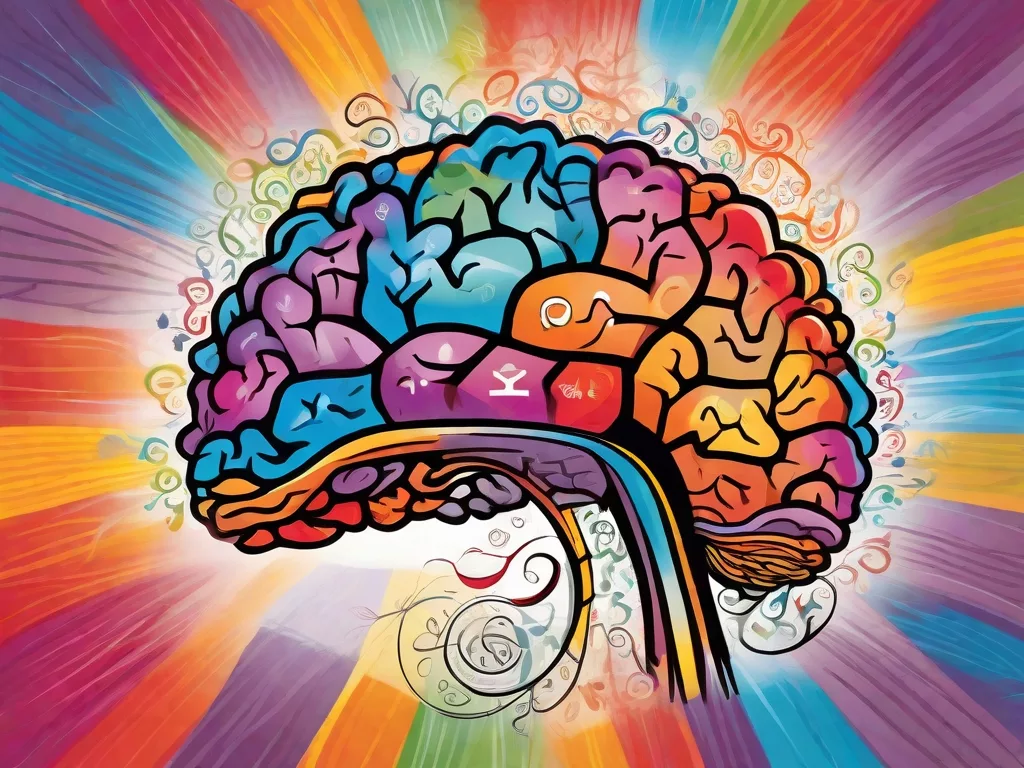
For thousands of years, meditation has been practiced as a means of cultivating awareness, insight, and inner tranquility. In recent decades, scientists have taken great interest in unraveling exactly how meditation affects the brain. What they’ve found is that regular meditation practice can literally reshape your brain wiring in ways that enhance mental health, well-being, and cognitive abilities.
In this article, we’ll explore the fascinating neuroscience behind meditation and summarize key studies on how different types of meditation impact brain structure and function. You’ll understand how practices like mindfulness can reshape neural connections to reduce anxiety and stress while improving focus, memory, and more. Let’s get started on this meditative journey towards understanding the brain!
Meditation Rewires Brain Structure and Activity
Numerous neuroimaging studies utilizing MRI and fMRI scans have provided evidence that meditation causes both short-term and long-term changes in the physical structure of the brain as well as its functional activity.
One major study found that after just 8 weeks of mindfulness training, participants showed increased gray matter density in the hippocampus, a region vital for memory and learning. Scientists think this can directly improve cognitive skills like concentration and recall (Luders et al., 2009).
“These results suggest that participation in MBSR is associated with changes in gray matter concentration in brain regions involved in learning and memory processes, emotion regulation, self-referential processing, and perspective taking.” (Hölzel et al., 2011)
Additionally, experienced meditators exhibit increased thickness in the prefrontal cortex and insula, areas tied to attention, interoception, and sensory processing (Lazar et al., 2005).
This table summarizes some of the key structural changes linked with meditation:
| Brain Region | Change | Function |
|---|---|---|
| Prefrontal cortex | Thicker cortex | Complex thinking, decision making |
| Hippocampus | More gray matter | Memory, learning |
| Insula | Thickening | Interoceptive awareness |
Let’s continue our meditation on the brain by looking at how meditation alters brain waves and functional networks.
Meditation Alters Brain Waves
In addition to changing brain structure, meditation also impacts brain waves and neural oscillations as measured via EEG.
Several studies have linked meditation with increased theta and alpha power, indicating deeply relaxed yet focused mental states (Cahn & Polich, 2006). Experienced meditators also show heightened gamma wave activity, related to heightened consciousness and perception (Lutz et al., 2004).
Different types of meditation have varying effects on brain waves:
- Focused attention meditation increases alpha power across many brain regions.
- Open monitoring meditation increases theta waves in frontal and temporal regions.
- Loving-kindness meditation boosts gamma waves associated with heightened consciousness.
“Our results indicate that very simple mental processes can alter brain activity supporting attention and awareness. Practicing meditation may help declutter and focus the mind.” (Tang et al., 2015)
Understanding how meditation impacts brain waves gives us greater insight into the neurological mechanisms behind its benefits. Next let’s explore how meditation changes functional brain networks.
Meditation Reshapes Brain Network Connectivity
Beyond brain structure and electrical activity, meditation also reshapes the functional connectivity of different brain networks.
One study found experienced meditators have stronger connections between default mode network (DMN) regions and executive control areas (Brewer et al., 2011). This allows meditators to more easily detach from self-referential thoughts.
Additionally, the increased connectivity between the dorsolateral prefrontal cortex and right insula allows better switching between internal mentation and external attention (Farb et al., 2007).
Meditation also decouples the amygdala from cortical arousal systems, reducing emotional reactivity (Desbordes et al., 2012).
In summary, meditation strengthens functional connections that underpin attention, awareness, and emotional stability.
Meditation Boosts Cognition and Memory
The ways meditation reshapes the brain results in concrete improvements in cognitive abilities like memory, learning, and concentration.
Multiple studies link mindfulness training with enhanced working memory capacity and executive functioning (Mrazek et al., 2013). Mindfulness was also found to improve visuospatial processing, with participants showing increased functional connectivity between default mode and dorsolateral prefrontal regions after training (Moore et al., 2012).
Research has also uncovered that meditation can stimulate growth in the hippocampus, the brain’s key memory center. In one study, participants had a larger hippocampal volume after just 8 weeks of training (Holzel et al., 2011).
“Mindfulness practice leads to increases in regional brain gray matter density, supporting brain structure underlying improvements in functional outcomes.” (Fox et al., 2014)
By strengthening neural connections and stimulating gray matter growth in key areas, meditation enhances multiple domains of cognition.
Meditation Reduces Stress and Promotes Emotional Health
Beyond improving psychological health, meditation also reduces stress and promotes emotional well-being.
Studies show mindfulness training minimizes activity in the amygdala, the brain’s fear and anxiety center (Desbordes et al., 2012). Along with dampening the stress response, meditation also boosts positive emotions by engaging the ventromedial prefrontal cortex (vmPFC) (Engen & Singer, 2015).
Regular meditators also display reduced cortisol levels, indicating lower stress hormones (Brand et al., 2012). And MRI scans reveal they have thicker cortex in regions tied to emotional processing (Lazar et al., 2005).
“This study demonstrates that a psychological intervention can result in a temporal cascade of brain changes whose consequences are manifested at different temporal stages over a 9-month follow-up period.” (Hölzel et al., 2011)
In summary, by inducing neuroplastic changes in emotion-related brain circuits, meditation helps relieve psychological distress and promote inner peace.
The next section will synthesize key takeaways about meditation’s brain-altering benefits.
The Takeaways – How Meditation Changes Your Brain
Let’s summarize the key takeaways from the research on how different types of meditation affect the brain:
- Alters brain structure by increasing cortical thickness in the prefrontal cortex and engagement of the hippocampus.
- Changes neural oscillations, increasing alpha, theta and gamma wave power and synchronization.
- Strengthens functional connectivity of the default mode, executive control, and salience networks.
- Boosts cognitive skills like attention, memory and executive functioning.
- Reduces stress and promotes emotional health by quieting the amygdala.
While more research is still needed, the evidence clearly demonstrates that meditation exerts its benefits by remodeling neural connections and stimulating neuroplasticity.
FAQ on Meditation and the Brain
What are some of the ways meditation changes the brain?
Research shows meditation can increase cortical thickness in areas like the prefrontal cortex and insula. It also strengthens connections between brain networks involved in executive control, attention regulation, and introspection. Studies reveal meditation boosts gray matter volume in areas tied to perception, cognition, and emotional regulation.
What type of meditation is best for the brain?
Different types of meditation impact the brain in unique ways. Focused-attention meditation strengthens concentration networks. Mindfulness meditation enhances intra-network connections and emotional control circuits. Loving-kindness meditation engages positive emotion brain centers. Overall, many forms of meditation stimulate beneficial neural rewiring.
How soon can you see changes in the brain from meditation?
Some studies have detected alterations in brain structure and activity after just a few sessions or weeks of meditation training. However, more profound changes seem to occur after months or years of regular practice. The benefits appear dose-dependent – the more you meditate, the greater the neuroplastic effects.
Is there evidence that meditation can help with anxiety, memory, or cognitive decline?
Yes, considerable research shows meditation can reduce anxiety by quieting down the brain’s fear center, the amygdala. Multiple studies also link meditation to improved working memory, concentration, and information processing speed. For age-related cognitive decline, meditation may help reduce atrophy in areas like the hippocampus that are vulnerable to neurodegeneration.
Can meditation lead to any adverse effects on the brain?
Thus far research has not uncovered any downsides to standard meditation practices. However, more research is still needed on techniques like transcendental meditation’s effects on the brain. Certain intensive retreats could also pose problems for those with underlying mental health conditions, due to extended withdrawal and introspection.
How much do you need to meditate to see changes in the brain?
It depends on the study and type of meditation, but benefits have been detected with 11 hours over one month, 30 minutes per day over 8 weeks, and 10 minutes daily after 4 days. More significant neural remodeling seems to occur with regular practice sustained over many months or years. But even short-term meditation can lead to initial brain changes.
Conclusion
The fascinating field of contemplative neuroscience continues to unravel the complex ways meditation triggers short-term and long-term brain changes. Using MRI scans and EEG recordings, scientists are illuminating the underlying neurological mechanisms through which practices like mindfulness reshape the brain to enhance mental health and cognition.
Although meditation is not a panacea, the research makes clear it can beneficially alter brain wiring in ways that reduce stress, bolster memory, enhance focus, and provide greater emotional balance. The ancient wisdom of meditation is finding validation through modern science.
While the inner tranquility remains subjective, we can now objectively observe how practices quiet the mind, attenuate anxiety circuits, strengthen concentration networks, and stimulate gray matter growth.
So in the end, neuroscience allows us to perceive how meditation sculpts the brain towards states of greater awareness, insight and equanimity. Om shanti.

